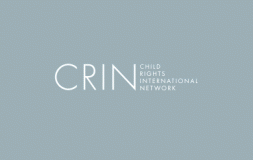Submitted by crinadmin on
What is UNHCR? UNHCR’s efforts are mandated by the organisation’s Statute, and guided by the 1951 United Nations Convention relating to the Status of Refugees and its 1967 Protocol. International refugee law provides an essential framework of principles for UNHCR’s humanitarian activities. In support of its core activities on behalf of refugees, UNHCR’s Executive Committee and the UN General Assembly have authorized the organisation’s involvement with other groups. These include former refugees who have returned to their homeland; internally displaced people; and people who are stateless or whose nationality is disputed. UNHCR seeks to reduce situations of forced displacement by encouraging States and other institutions to create conditions which are conducive to the protection of human rights and the peaceful resolution of disputes. In pursuit of the same objective, UNHCR actively seeks to consolidate the reintegration of returning refugees in their country of origin, thereby averting the recurrence of refugee-producing situations. How does it work with children? UNICEF and UNHCR work together on different programmes involving children. UNICEF's work with refugees is based on a resolution from its Executive Board calling on the agency "to continue providing emergency assistance to refugee and displaced women and children, particularly those living in areas affected by armed conflict and natural disasters." Some of the child protection activities which they engage in include obtaining support for unaccompanied and separated children; ensuring the psychological well being of children and their families; providing basic education and meeting the health needs of children, adolescents, and their mothers. They provide basic services to refugees, and in the repatriation of refugee populations. The agencies also work to strengthen water and sanitation services for the benefit of refugees and displaced persons and in the case of repatriation of refugee populations. Close partnerships have been developed between UNHCR and NGOs in the field of emergency response, and have helped to supply specialist staff dealing with, for example, child protection. Further information
UNHCR was established in 1950 by the United Nations General Assembly. Its primary purpose is to safeguard the rights and well-being of refugees. It strives to ensure that everyone can exercise the right to seek asylum and find safe refuge in another State, with the option to return home voluntarily, integrate locally or to resettle in a third country.

